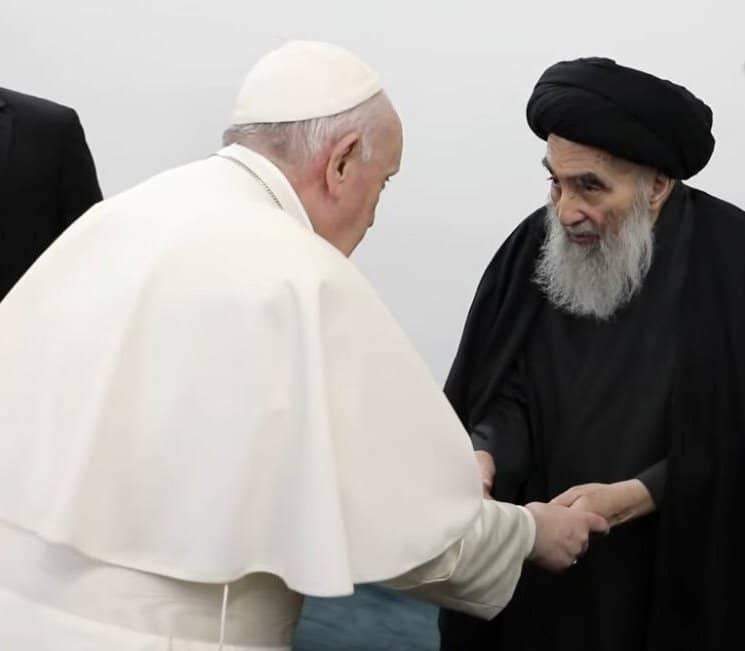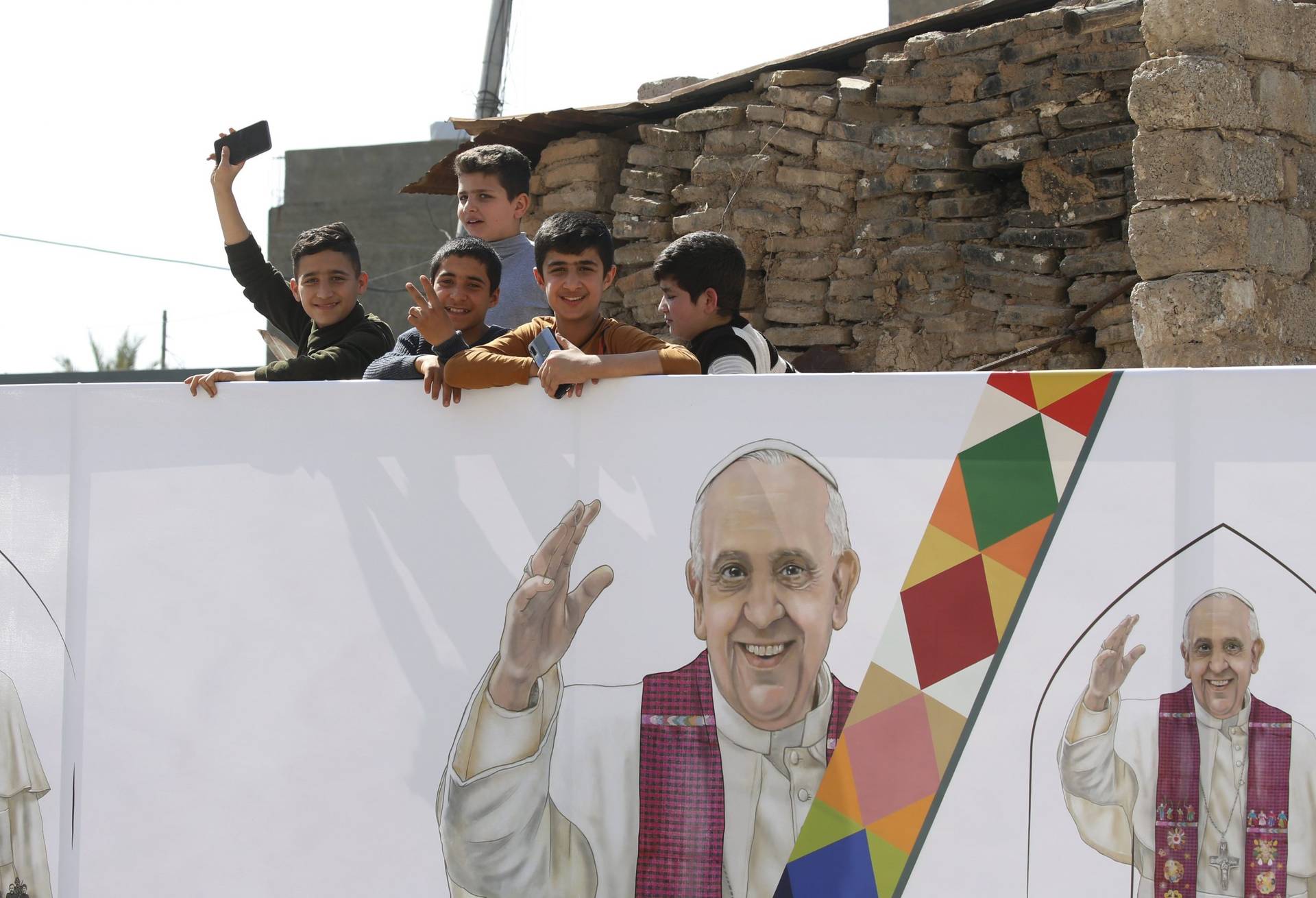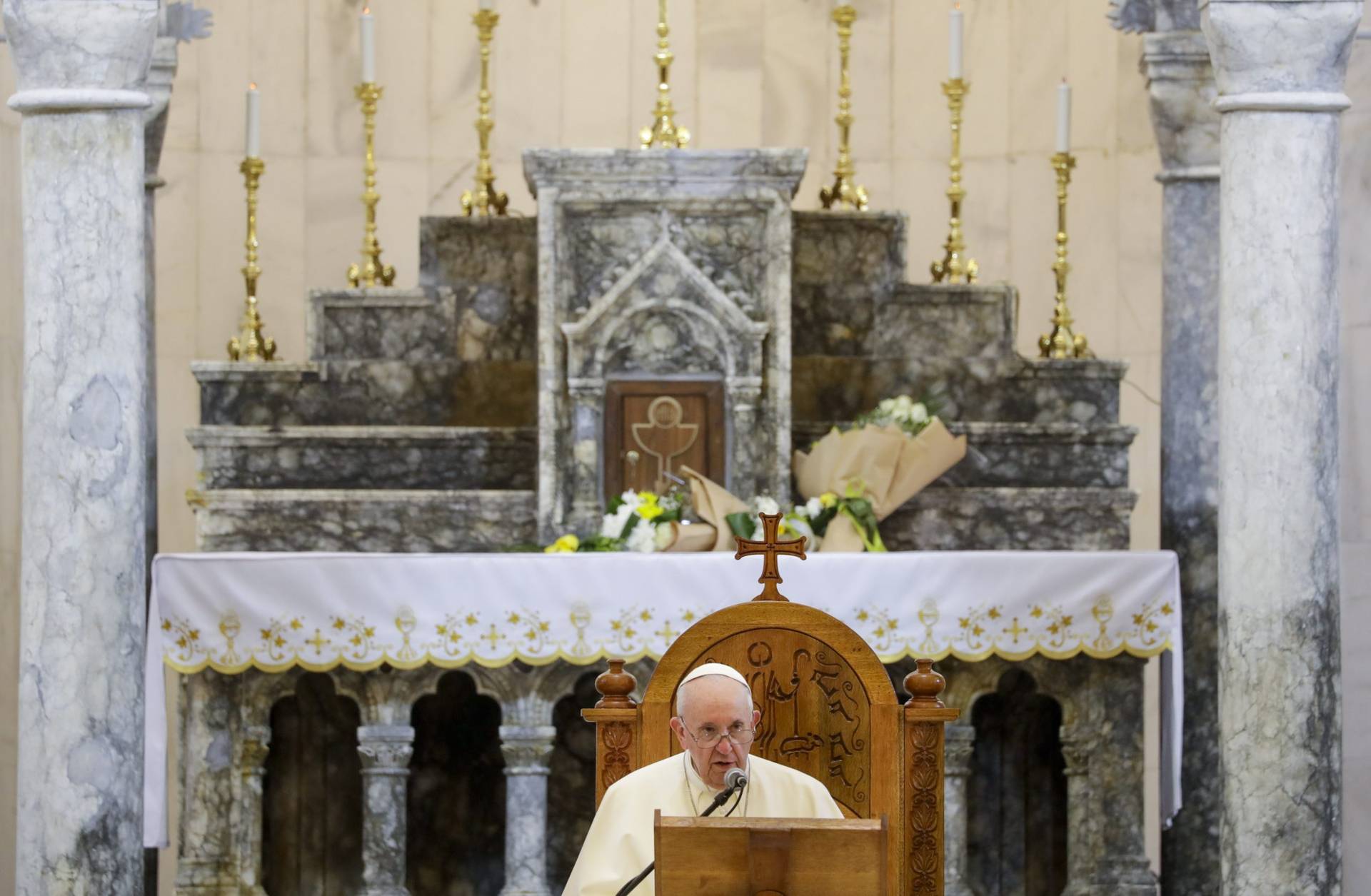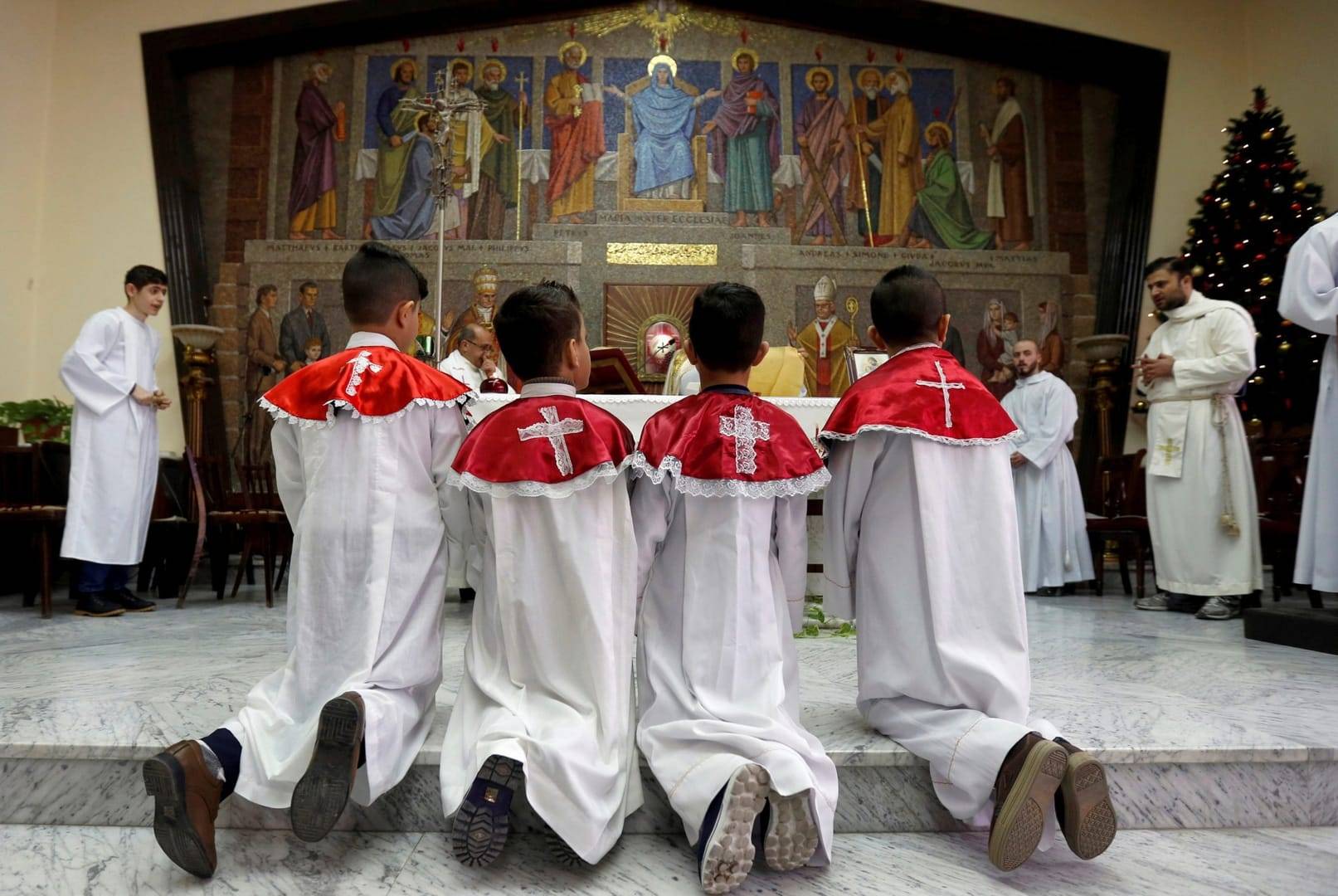ABOARD THE PAPAL PLANE — British Archbishop Paul Gallagher, in effect the Vatican’s foreign minister, told Crux that trying to stop the hemorrhaging of Christians from the Middle East was one of the reasons behind the pope’s steadfast determination to carry out his March 5-8 trip to Iraq despite the challenges.
“That’s something that the pope is trying to do, but it’s very difficult,” Gallagher said when asked if he though part of Francis’ sense of urgency to go to Iraq despite the COVID-19 pandemic and safety concerns was the risk of Christianity disappearing from the Middle East.
“The hemorrhaging of Christians from the Middle East – Iraq, Lebanon, also Syria – is a significant challenge to the future of Christianity, and it is a geopolitical problem, because Christians have always been there, they have always had a role amidst the other communities, the larger, more powerful communities,” the archbishop said during the four-plus hours flight from Baghdad to Rome that took the pope home.
During his visit to Mosul, a city that in Iraq’s Nineveh Plains that’s both a crossroads of tolerance and a former capital of ISIS self-proclaimed caliphate, Francis said “fraternity is more durable than fratricide, that hope is more powerful than hatred, that peace more powerful than war.”
In particular, Francis expressed hope that the region’s struggling Christian minority will be able to hang on.
The “tragic diminution of Jesus’ disciples here and across the Middle East,” the pope said, “does incalculable harm not just to the individuals and communities concerned, but also to the society they leave behind.”
During a short inflight conversation with Crux, Gallagher said that if Christians “lose our roots in the Middle East, this will have a very grave impact. It will no longer be a living community but like a museum.”
He made a parallel to what is happening in North Africa today, where the historic presence of Christianity is now a part of history: “All these titular bishops of the Catholic Church have titles of dioceses that used to exist in Algeria, Morocco, Tunisia. There’s nothing there now.”
Beyond “tradition,” he said, “there isn’t really a great living injection of life into the Catholic Church and the Christian churches from North Africa, and there’s a danger that the Middle East could become a little bit like that, a place where we go and visit almost museums of the Holy places, but we don’t live there.”
“I think that [helping Christianity survive in the Middle East] is something the pope is trying to do, but it’s very difficult,” Gallagher said. “You can’t oblige Christians to stay in the Middle East, [because people have] the right to migrate. And if people have families, young families, and they don’t see a future …”
Asked if the Vatican could “oblige” the international community to work in creating circumstances in which Christians feel safe enough to stay, Gallagher, technically the man tapped to handle relations with foreign governments by the Vatican’s Secretary of State, said that “this is one of the things that we do.”
“We have had a lot of exchanges with the diplomatic corps back in Rome, I was talking to the foreign minister here in Iraq about Ur and what it means for Christianity,” he said. “Since the invasion of Iraq, Christians have gone from 1.3, 1.5 million to some 250,000 Christians today.”
Though he didn’t mention it, based on the statistics he gave Gallagher was referring to the U.S. led-2003 invasion of Iraq, something St. John Paul II worked tirelessly to prevent.
Lastly, Gallagher was asked if anyone asked the pope not to mention the U.S. during his trip to Iraq, which some observers have pointed out was a possibility, considering the impact the invasion form the Bush administration had for Christians in the country.
The archbishop said, “I don’t think it ever arose.”
Follow Inés San Martín on Twitter: @inesanma















